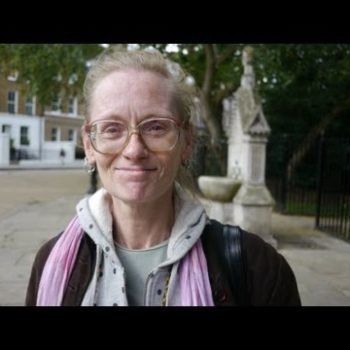In the United States of America, homelessness is notorious for shaving decades off a person’s life – three decades, to be precise, according to the latest statistics. It should come as no surprise that people enduring the horrors of homelessness exhibit a much younger average age of death than their housed counterparts.
Perhaps even more shocking, though, is that homeless women in the UK are dying at even younger averages than their homeless counterparts in the United States, a discrepancy that’s certainly of note.
According to findings presented by Dr. Bethan Thomas of the University of Sheffield in her publication Crisis, the average age of death for a homeless woman in the UK is the tender age of 43, which is four years younger than in the United States.
Both countries present a generally housed life expectancy of approximately 77 years. Living unhoused sets this standard back a century or more, for the average age of death has not been under 47 in this region since 1900.
Dying Rough: Acknowledging the Unserved Needs of Homeless UK Residents
Flowers and commemorative trinkets lined the Westminster tube station on a bleak December afternoon after a second homeless man was found dead mere footsteps from the ornate Houses of Parliament. The picture painted is a painful reminder of the ever-growing gap between rich and poor. It almost seems surreal.
On one corner, a homeless man clutches his poverty-stricken chest and dies after being turned away from the crowded local shelter. Meanwhile, in the Houses of Parliament just across the street, 100 spiraling staircases branch into 3 miles of passageways leading to 1,100 opulent rooms.
Gilded crowns and gold-leafed ceilings loom over lifeless bodies, still and speechless in the cold.
According to bystanders and friends, the homeless man, later identified as Gyula Remes, died after choking on his own vomit. He was 43 years old.
In the housed community, death at such an age would seem abrupt or even shocking. In the homeless community, however, this is the norm.
Sobering Statistics: UK-Based Homeless People Are More Likely to Die at Just About Every Age
While the average age of death is astounding in itself, the study cites more causes for concern. As it turns out, when compared to their housed peers, unhoused people in the area are also:
- Twice as likely to die between the ages of 16 and 24
- Four to five times more likely to die between the ages of 25 and 34
- Five to six times more likely to die between the ages of 35 and 44
- And three to four times more likely to die than the general population after 45
From a Mortality Standpoint, Homelessness Appears to Take a Tougher Toll on Women
Men are drastically overrepresented and underserved in the homeless population. They account for roughly 90% of all individuals who are currently homeless. But while men are statistically more likely to become homeless and also to be victims of violent crimes while enduring homelessness, women are still more likely to die younger when forced into the same condition.
As a testament to this, the average age of death for homeless women in the UK is 43, while the average age of homeless death for men in the same location is 47.
Four years might seem like little in the grand scheme of things. But consider the fact that the opposite of this is true in communities that are stably housed. In the general housed population, the women outlive the men by a marginal but significant number. Housed men live to an average age of 74, while housed women exceed that by six years, dying at an average age of 80.
In the unhoused community, the inverse of this is true, which implies that homelessness takes a more brutal, or at the very least, an increasingly fatal toll on women than it does on men.
Causes of Death Vary Greatly but Consistently Reflect Underserved Medical Needs
Generally speaking, when compared to their housed counterparts, houseless individuals are much more likely to die from all of the following ills:
- Cancer
- Chronic heart disease
- Suicide
- Drug or alcohol overdose
- Respiratory illness
- Slip and falls
- Hepatitis
- HIV and chronic health conditions
Given the varying underlying causes of death, it is clear that all of the medical needs of members of the homeless community are currently being ignored. To quote the study’s author directly, “Homeless people are being failed by the health system.”
To shed some perspective on this issue, a separate study concluded that 33% of UK homeless deaths would have been treatable if only the medical system had responded in adequate time.
While the average age of death in the local homeless population is 43 for women and 47 for men, we should note that one in four homeless people die before the age of 40.
These are not just numbers in a system. Those numbers represent our neighbors, children, parents, brothers, sisters, cousins, and friends.
Innocent Lives Are at Stake Every Hour. Please Talk to Your Representatives About Solving the Homeless Crisis Now.
Did you know that in the United Kingdom, a homeless person dies every six and a half hours? That’s nearly four deaths for each day that goes by. Don’t hesitate to contact your representatives and tell them housing has to be a human right. It’s the only way to end the vicious, fatal cycle.













